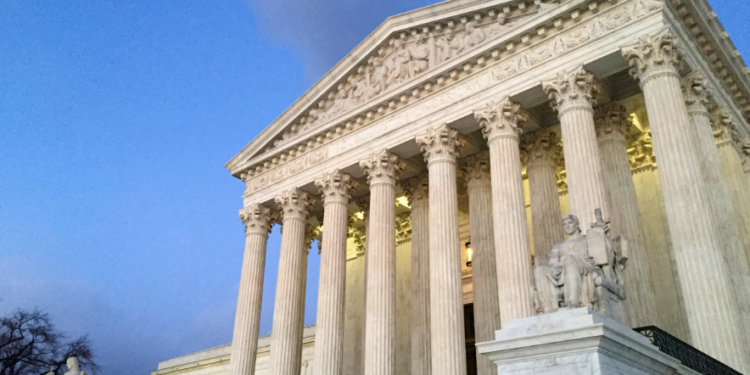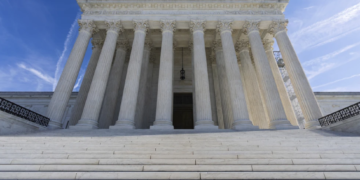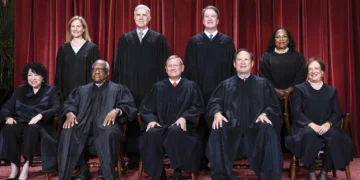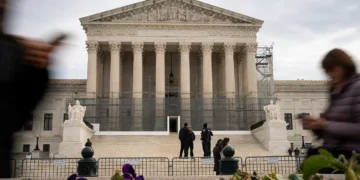March 11, 2025 Story by: Editor
WASHINGTON – A workplace “reverse discrimination” case before the Supreme Court on Wednesday.
However, the justices could rule in favor of a heterosexual woman who claims she was unfairly denied job opportunities in favor of gay colleagues, without addressing the broader efforts led by former President Donald Trump to dismantle DEI programs.
What is Ames v. Ohio Department of Youth Services?
Marlean Ames applied for two promotions within the Ohio Department of Youth Services but was passed over in favor of other candidates whom she believed were less qualified.
Having initially joined as an executive secretary in 2004, Ames worked in various roles before seeking a promotion in 2019. The position was instead awarded to a gay woman who, like Ames, had held management positions but did not possess a college degree and had not originally applied for the role.
Shortly after being denied the promotion, Ames was also demoted from her position as a program administrator. That role was then given to a gay man who had previously been hired as a social worker.
Why Did Ames’ Employer Say She Wasn’t Promoted?
According to department officials, Ames was not promoted because she lacked the necessary vision and leadership qualities.
They further stated that her demotion resulted from her failure to adopt a proactive approach toward the department’s increased focus on preventing sexual violence in juvenile correctional facilities.
What Happened When Ames Filed a Lawsuit?
Ames sued the department under Title VII of the Civil Rights Act, which prohibits discrimination based on “race, color, religion, sex, or national origin.”
Her lawsuit was dismissed, and the Cincinnati-based 6th U.S. Circuit Court of Appeals upheld that decision.
The lower courts ruled that Ames had not provided “background circumstances” proving the department was an “unusual employer who discriminates against the majority.”
The appeals court stated that Ames could have supported her claim with statistical evidence showing a pattern of discrimination against heterosexuals or by demonstrating that a gay person made the hiring decisions.
The “background circumstances” requirement was first introduced by the U.S. Court of Appeals for the D.C. Circuit in 1981. While many appellate courts have adopted it, not all have done so.
What Issue is the Supreme Court considering?
Ames has asked the Supreme Court to determine whether courts can mandate such evidence in discrimination cases.
Her attorneys argued that had she been gay and the employees who received the jobs were not, her lawsuit would have been allowed to proceed.
“But because Ames falls on the majority-group side of the majority/minority fault line, she has no legal recourse,” they wrote in a court filing.
Ohio’s attorneys countered that Ames’ claim was not subjected to a higher standard but that she simply failed to provide enough initial evidence of discrimination for her case to move forward.
How might the Supreme Court rule?
A ruling in Ames’ favor would align with previous decisions by the court’s conservative majority, which has focused less on historical patterns of discrimination and more on the principle that any form of bias constitutes discrimination.
“Eliminating racial discrimination means eliminating all of it,” Chief Justice John Roberts wrote in the 2023 decision that effectively ended affirmative action in college admissions.
Additionally, the court’s three liberal justices might find merit in the argument that the Civil Rights Act does not set different legal thresholds based on majority or minority status. Notably, the Biden administration’s Justice Department also made this argument in its filing before the court.
What will a Supreme Court win mean for Ames?
Even if the Supreme Court rules that Ames does not need to meet the “background circumstances” requirement, she would not automatically win her lawsuit.
The lower courts could still determine that Ames has not sufficiently challenged the department’s stated reasons for passing her over. Furthermore, even if she clears that hurdle, she would still need to persuade a jury in order to win her case.
Source: USA Today
















